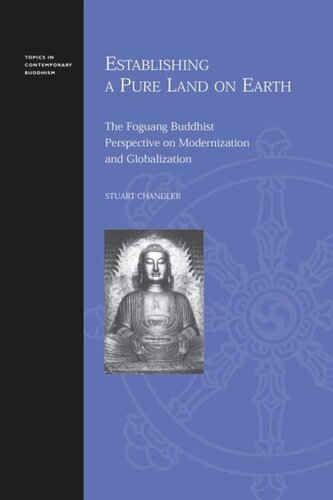

Most ebook files are in PDF format, so you can easily read them using various software such as Foxit Reader or directly on the Google Chrome browser.
Some ebook files are released by publishers in other formats such as .awz, .mobi, .epub, .fb2, etc. You may need to install specific software to read these formats on mobile/PC, such as Calibre.
Please read the tutorial at this link: https://ebookbell.com/faq
We offer FREE conversion to the popular formats you request; however, this may take some time. Therefore, right after payment, please email us, and we will try to provide the service as quickly as possible.
For some exceptional file formats or broken links (if any), please refrain from opening any disputes. Instead, email us first, and we will try to assist within a maximum of 6 hours.
EbookBell Team

5.0
110 reviewsWith more than 150 temples in thirty countries, Foguangshan has developed over the last thirty-five years into one of the world’s largest and most influential Chinese Buddhist movements. The result of two years of fieldwork in Foguangshan temples in Taiwan, the U.S., Australia, and South Africa, this volume is an unprecedented examination of the inner workings of a dynamic and innovative religious movement.
Based on direct observations, private interviews, and careful textual and historical analysis, Stuart Chandler looks at the challenges faced by Foguangshan’s leader, Master Xingyun, and his followers as they try to adhere to traditional practices and values while tapping into the advantages afforded by modern, global society. Foguangshan’s slogans (“Humanistic Buddhism” and “Establishing a Pure Land on Earth”) are placed in historical context to reveal their role in shaping the group’s attitudes toward capitalism, women’s rights, and democracy, as well as toward the traditional Chinese virtue of filial piety and the Chinese Buddhist concept of “links of affinity” (jieyuan).
Chandler goes on to analyze Foguangshan’s educational system and its understanding of how precepts relate to contemporary problems such as abortion and capital punishment. The book’s final chapters consider the cultural and political dynamics at play in Foguangshan’s ambitious attempt to spread Humanistic Buddhism around the world and how its followers have reinterpreted the Buddhist ideal of homelessness to take advantage of the spiritual potentialities of people’s lives as global citizens.